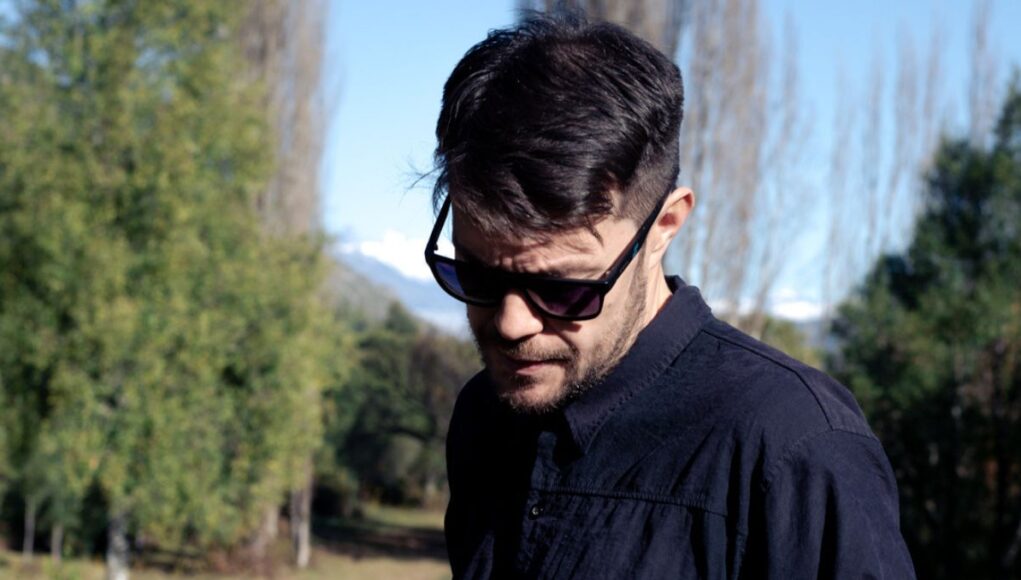From early releases on R&S and ZZK to founding his own imprint, Otherness, Hermetics has consistently walked a path of independence. Now based in Patagonia, his surroundings of forests and mountains have become both backdrop and catalyst for a freer, more exploratory approach to sound. Here he reflects on stepping outside genre confines, finding inspiration in collaboration, and shaping music that balances the raw and the celestial.
Central to this is his recent Oora remix, a track that captures both grit and transcendence, offering a glimpse into where his evolving sense of freedom is taking him.
How has this year been for you so far, creatively or otherwise? Any unexpected turns or quiet breakthroughs?
This year has been truly special, marking another step toward both creative and psychological freedom—something that has profoundly shaped my music. I’ve been walking a path of transformation, exploration, and self-redefinition. While I haven’t produced as much as in previous years, the few works I have created carry deep meaning, as I’ve opened myself to collaborations with artists and sounds outside my usual realm.
Relocating to Patagonia has also been a powerful source of inspiration—soulfully, aesthetically, and spiritually. To wake each morning surrounded by snow-capped mountains and endless forests is to experience a landscape that reshapes everything within you.
Has your relationship with music making changed recently, either in how you approach the studio or in how you think about releasing music?
In recent years, my relationship with music has undergone a profound transformation. I no longer feel the need to confine myself within genres, labels, or fleeting trends. Instead, I embrace freedom—freedom to create, to explore, to play. Music, for me, has become the living expression of curiosity itself, a journey of endless discovery where the spirit of a child remains at the center.
This philosophy extends to how I release music. Founding Otherness was not just a practical decision, but a declaration of independence. The industry, as it once was, has dissolved: labels often hesitate to take risks, rewarding sameness over difference, turning into exclusive clubs where only insiders are welcomed. I refuse to accept those limits. Through Otherness, I carve my own path—one that honors experimentation, authenticity, and the courage to sound different.
I remain open to collaborations with other labels, but always on my own terms. My commitment is not to a system, but to the music itself.
You’ve released music since the early R&S and ZZK days. Looking back, do any early tracks or ideas in particular still inform what you’re doing now?
I would say only on an energetic level, yes. While those earlier releases—especially the ones on R&S—already carried traces of the fusion I embrace today, they still leaned toward a more uniform techno framework. Now my music has become further deconstructed, more fluid in its hybridity, and far less concerned with belonging to any specific genre.
The bass and kick in your Oora remix feel loose and drift-prone, like they’re on the edge of falling off the beat. Were you consciously pursuing that feeling of momentum?
I was seeking a rhythm that felt raw and unfiltered—untouched by overproduction or sophistication. Something that carried the spirit of a big-room rave, with all its dust, grit, and organic aggression. From there, I wanted to merge it with the sublime essence of Oora.
At what point in the process did the sense of a long hypnotic journey really crystallize for you?
In the drop after the second breakdown, the track feels like a journey. The core elements remain, yet the melody becomes wetter and more spatial, giving the sense of continuity while drawing the listener into a deeper state of immersion.
You also spoke about following Federico’s work and being moved by the emotional rawness of his live jams. Was there a particular emotional quality in his performance you wanted to bring into your own work?
Yes, absolutely. What captivated me was the sense of improvisation, minimalism, and natural flow in the melody. It felt like the perfect counterpart to my own music, which is more sample-based, digital, and rhythm-driven. To me, it became a marriage of sky and earth—an ethereal melody woven together with grounded percussion and roots. I like to think of my work as the union of such opposites, constantly balancing the celestial with the primal.
You’ve straddled very different tempos throughout your career, from minimal ambient forms to heavy percussive grooves. Do you think this remix points toward a single direction or are you keeping both paths open?
The remix simply emerged that way—it wasn’t meant to signal any particular direction. I remain open to everything. What has shifted, however, is that I find myself gravitating more toward melody and harmony. Soon I’ll be releasing an EP on Earthly Measures, where you’ll hear the extent of my current explorations—boundless and unrestricted.
The sense of resolution in this remix is elusive. Do you enjoy creating tracks that feel slightly unresolved, or do they just emerge that way and stay?
It’s funny—this is actually the second time I’ve been asked that. Honestly, I wasn’t aiming for it at all. Maybe, on some unconscious level, I just don’t like being too obvious or predictable in structure. I’ve always liked open endings—so perhaps that’s the reason (lol).
In today’s shifting electronic landscape, where genres, formats, and scenes keep dissolving, do you feel connected to a lineage, or are you intentionally stepping outside those frames?
I feel more deeply connected to myself, and to the authenticity I recognize in other artists. I don’t see myself as belonging to any scene, nor as leaving or entering one. Instead, I follow what arises within me—the reflection of my own creative freedom, continually inspired by others, regardless of genre or form of art.








